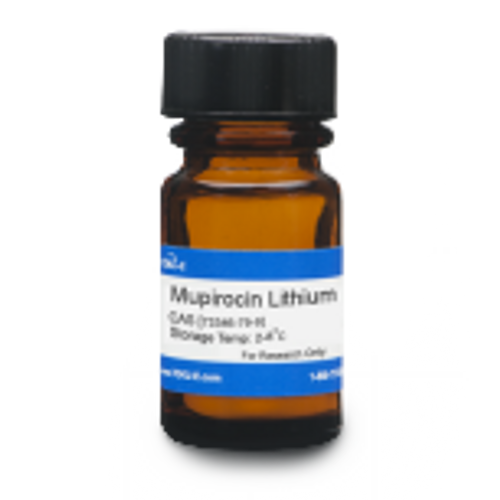Clavulanate Lithium (syn: Clavulanic Acid Lithium) is a stable salt preparation of Clavulanic acid, a natural, low-molecular weight β-lactam antibiotic. It has weak, broad-spectrum activity but offers synergistic antibacterial activity with penicillins and cephalosporins for greater efficacy against β -lactam resistant strains.
We also offer:
| Mechanism of Action |
Clavulanate is a potent suicide inhibitor of β -lactamases. It forms a covalent bond with a serine residue in the enzyme’s active site. Inhibition is time-dependent and irreversible. Clavulanic acid β-lactam antibiotics bind and inhibit PBPs (penicillin binding protein) thus inhibiting bacterial cell wall synthesis. |
| Microbiology Applications | Clavulanic acid had poor activity against S. aureus, Enterobacteriaceae, and P. aeruginosa. However, it can act synergistically with penicillins and cephalosporins to inhibit β -lactamase-producing S. aureus and Enterobacteriaceae. |
| References |
Brown AG et al (1984) Clavulanic acid and its derivatives. Structure elucidation of clavulanic acid and the preparation of dihydroclavulanic acid, isoclavulanic acid, esters and related oxidation products. J. Chem. Soc. Perkin Trans. I 635 Brown AGJ (1976) Naturally occurring beta-lactamase inhibitors with antibacterial activity. J. Antibiot. 29:668 PMID 950324 Neu HC and Fu KP (1978) Clavulanic Acid, a novel inhibitor of β-Lactamases. Antimicrob. Agents and Chemother. 14 (5):650-655 PMID 310279 Pitout JD, Sanders CC, Sanders WE (1997) Antimicrobial resistance with focus on beta-lactam resistance in Gram-negative bacilli. Am J Med 103:51 PMID 9236486 Reading C and Cole M (1977) Clavulanic Acid: a Beta-Lactamase-Inhibiting Beta-Lactam from Streptomyces clavuligerus. Antimicrob. Agents Chemother. 11(5):852-857 |









